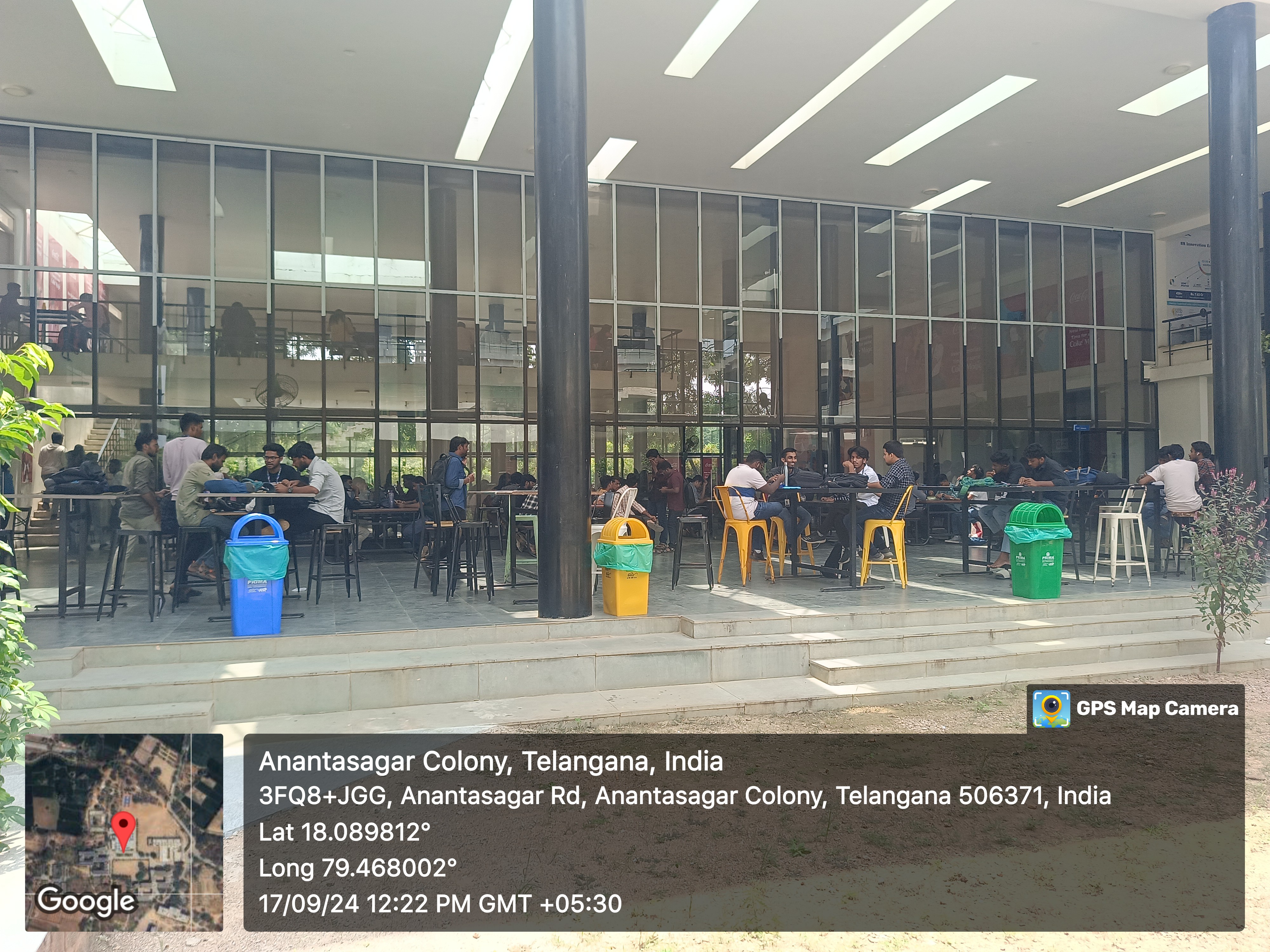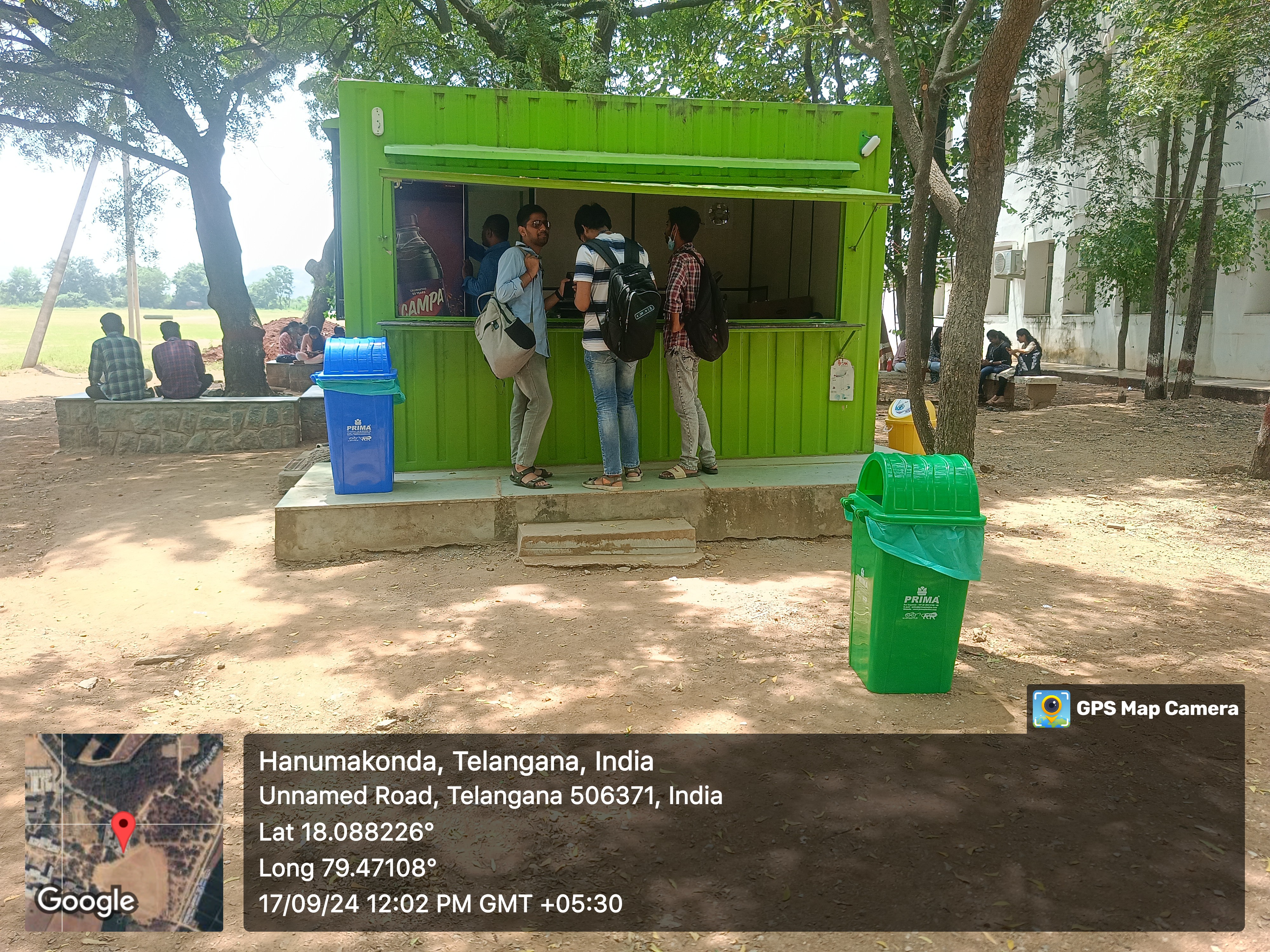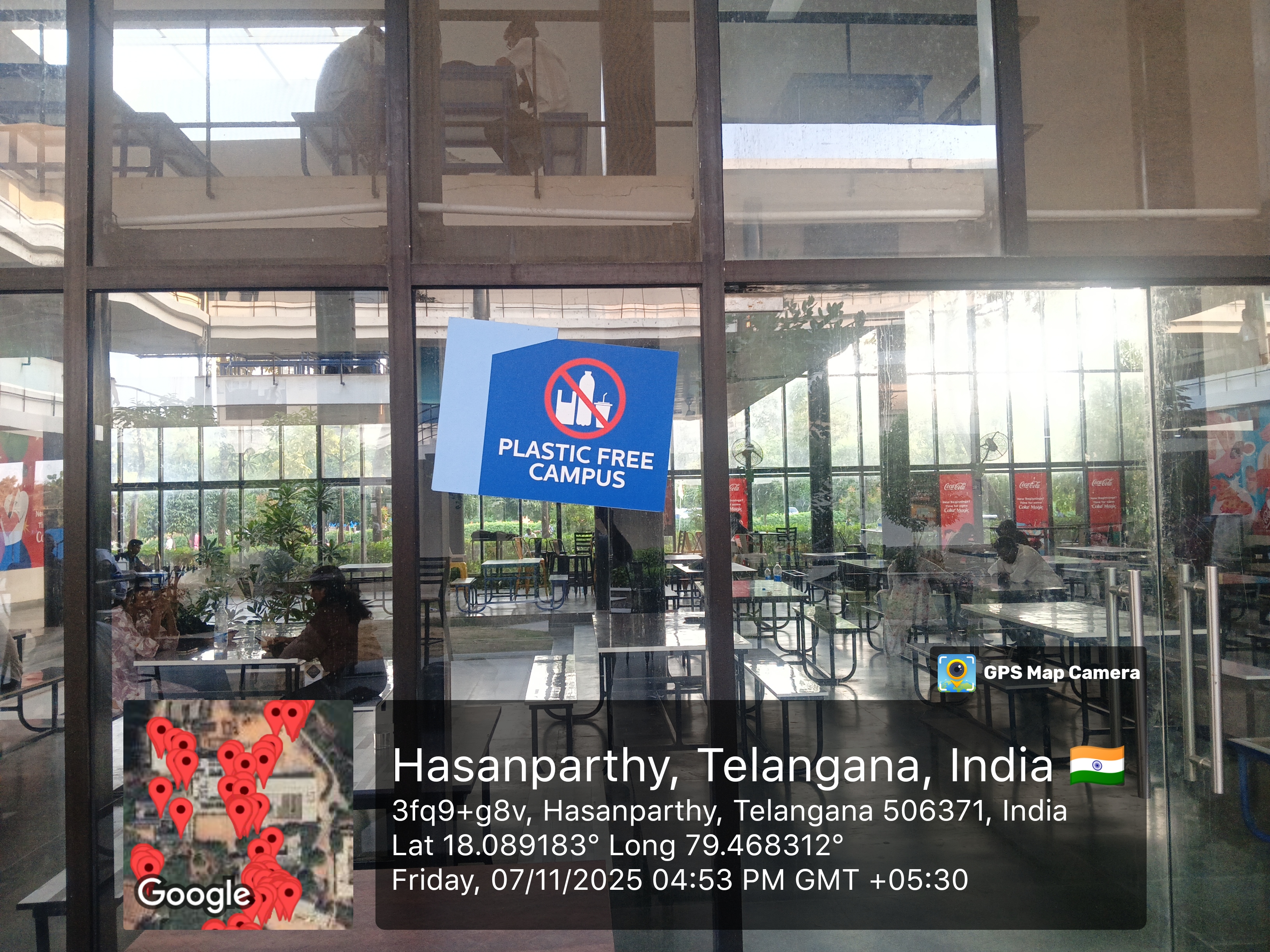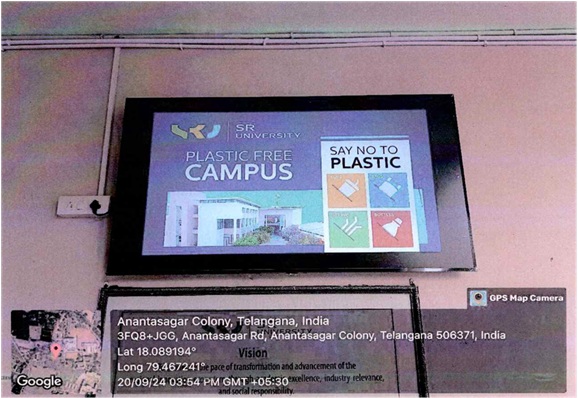SR University (SRU) is committed to promoting responsible production, sustainable procurement, and environmentally conscious consumption across all levels of campus operations. Guided by national environmental regulations, global sustainability frameworks, and the University’s own environmental stewardship policies, SRU has established a systematic approach to resource management that extends beyond campus boundaries to include outsourced services, supply-chain partners, and community stakeholders. These initiatives reflect the University’s long-term vision of cultivating a responsible, efficient, and ecologically balanced institution.
SR University follows a comprehensive Ethical Sourcing Policy that guides the procurement of food, materials, laboratory supplies, ICT equipment, and construction resources. The policy prioritizes suppliers who demonstrate environmentally responsible practices, transparency, and adherence to safety and quality standards. In alignment with SDG 12, the University’s procurement norms emphasize:
These principles extend to outsourced services, including housekeeping, catering, sanitation, landscaping, and facility management. Vendors must follow sustainability materials policy, waste disposal guidelines, and ethical sourcing standards as part of contractual obligations. Construction vendors and equipment suppliers are required to comply with statutory environmental rules, promote low-waste construction practices, and avoid environmentally harmful materials.
SR University has established multiple institutional policies that govern responsible production, resource efficiency, and environmental accountability. These include:
Under its Energy Policy, SRU promotes energy-saving measures across academic blocks, hostels, and research facilities, emphasizing LED lighting and solar-powered installations. ICT-enabled monitoring systems track energy consumption patterns to promote efficiency and minimize waste. These policies reflect a system-wide approach to responsible resource management that supports sustainable development while ensuring operational accountability.
SR University has a structured and well-monitored waste management framework that categorizes, measures, and tracks waste generation across the campus. Waste is segregated at source into:
Waste quantities are recorded at regular intervals following waste management rules and UI GreenMetric parameters.


Reduce–Reuse–Recycle Initiatives: SRU actively implements the 3R Programme to minimize waste generation and maximize resource circularity:


Continuous training, awareness drives, and sustainability campaigns encourage students, faculty, outsourced staff, and vendors to adhere to responsible consumption and waste management practices.
SR University follows a culture of transparency and environmental accountability by publishing an Annual Sustainability Report, which is made accessible through the University website. The report outlines:
The report aligns with international sustainability disclosure standards and supports evidence- based decision-making for future environmental improvements. SRU also actively participates in UI GreenMetric Rankings, THE Impact Rankings, and QS Sustainability Rankings, demonstrating its commitment to responsible production and consumption at a global level.
Beyond infrastructure and policy, SRU emphasizes behavioural change and community participation. Regular workshops, student-led sustainability clubs, and awareness campaigns foster responsible consumption habits across the campus. Faculty, staff, students, and outsourced personnel are trained in waste segregation, energy conservation, sustainable lifestyle choices, and ethical sourcing. SRU’s focus on environmental education, through academic programmes and co-curricular activities, nurtures a generation of environmentally conscious graduates who value responsible resource use and sustainable living.
Through robust policies, ethical supply-chain management, systematic waste monitoring, and transparent sustainability reporting, SR University demonstrates strong alignment with SDG 12. The University’s holistic approach integrating campus operations, outsourced services, and community engagement ensures responsible consumption and production across all levels. As SRU continues to adopt innovative sustainability practices, it remains firmly committed to reducing ecological impact, promoting circular resource management, and advancing environmental responsibility for future generations.